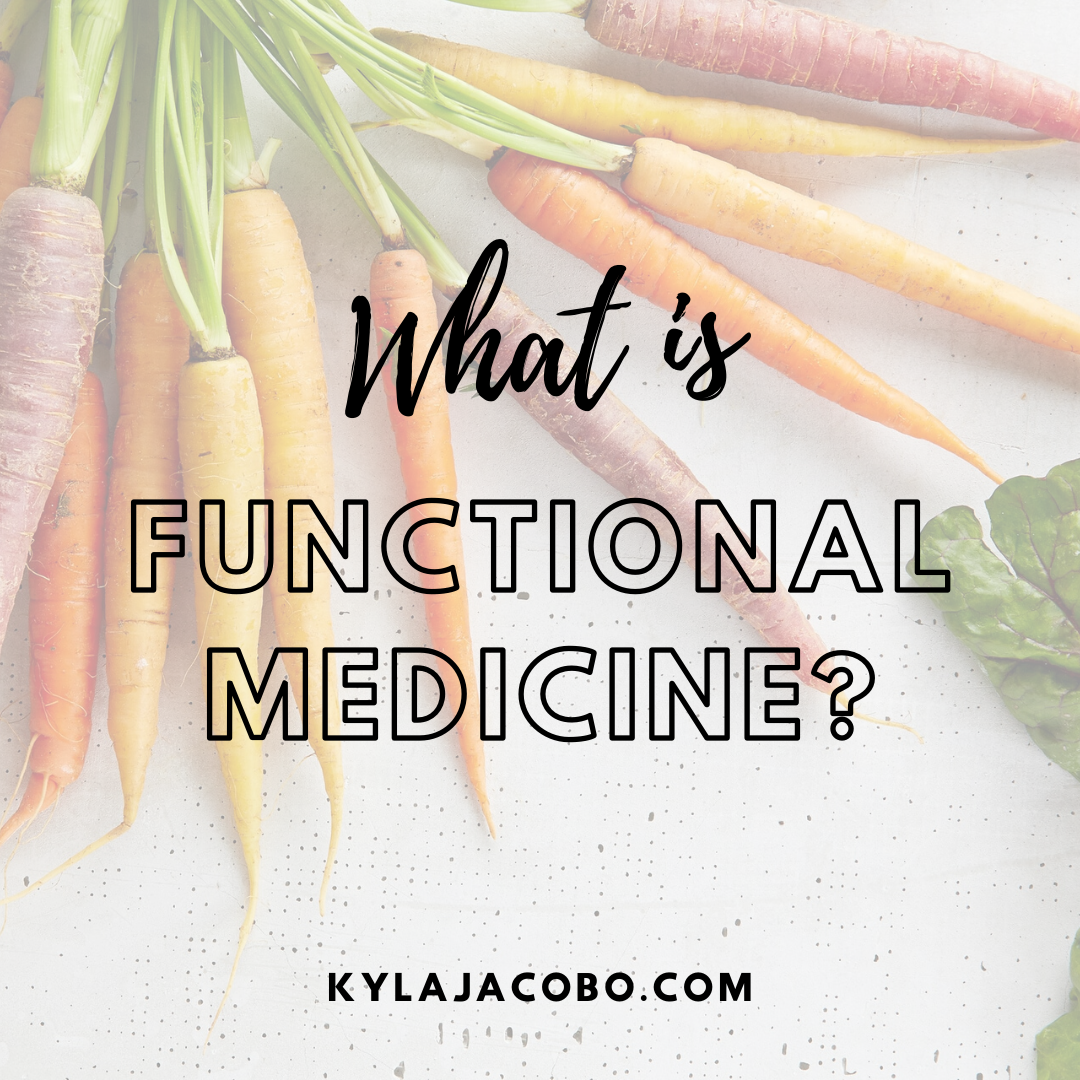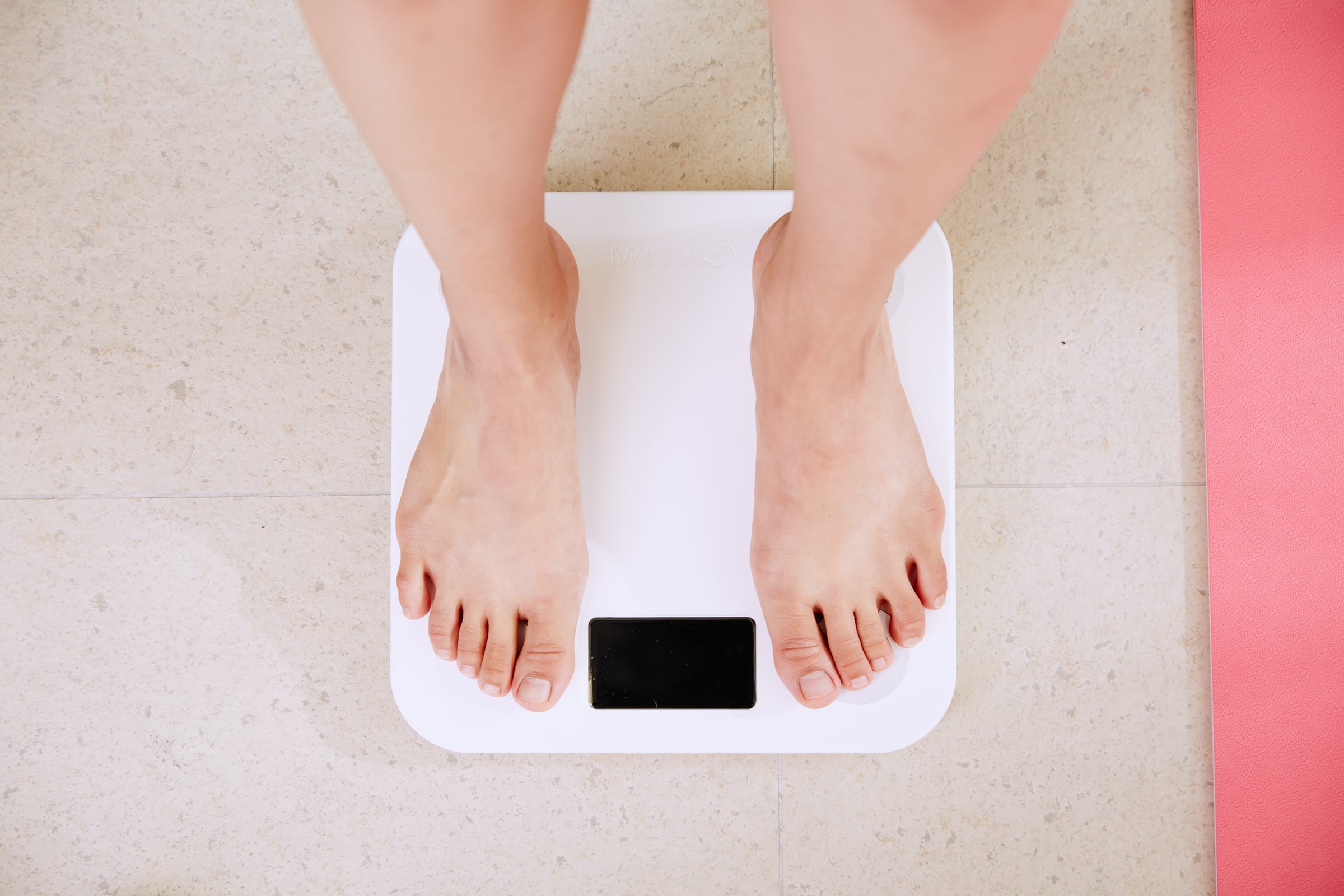
What is Functional Medicine – And Is It The Answer To Our Growing Health Crisis?
By Kyla Jacobo, DPT
Over the past 25 years, there has been an explosion in chronic disease. Diabetes, cardiopulmonary dysfunction, autoimmune disease, dementia, depression and anxiety. Many times, after years of unknowingly abusing our bodies, we find ourselves sitting in a doctor’s office with symptoms like chronic pain and fatigue, numbness or tingling, difficulty breathing, or maybe even chest pain. We are likely to leave the office after a short consultation with a few new pills that have a multitude of unpleasant side effects, possibly worse than the initial complaint. We are told to take the pills everyday for the rest of our lives, and if we are lucky, receive a vague mention about diet and lifestyle.
Fast forward a few years, we are again sitting in our doctor’s office, having religiously taken the prescription pills everyday. Not only have our symptoms worsened, but we now have a host of new problems from the havoc the meds have wreaked on our bodies. After exhausting all options, such as increasing medication doses, receiving injections, modifying functional activities, etc., we are told it is now time for surgery.
As a practicing Physical Therapist for the past 12 years, I have seen this story replay over and over. Our medical system is phenomenal at treating infections, wounds, trauma, and other acute conditions. Many lives have been saved by skilled physicians and surgeons. However, when it comes to chronic disease, our medical system is severely lacking. A patient is diagnosed with a chronic disease, given some pills, and then waits for the inevitable, long-term sequelae of that disease.
Many people accept it as a part of life…almost joke about it as if their disease was a trophy symbolizing a life well-lived.
“I guess my parts are just wearing out.”
“Who ever said these years are the golden years…?”
“Bacon on a donut…yes, please!”
Society has normalized gluttony and overindulgence, making every meal a celebratory feast, one in which our ancestors experienced once a year. Advancements in technology have led to the invention of processed, food-ish substances that are unhealthy and addictive. Our children are growing up thinking Fruit Snacks are actually made of fruit. That soda is hydration. And that chronic disease and suffering is a part of the natural aging process.
But that is a fallacy.
“A long, healthy life is no accident. It begins with good genes, but it also depends on good habits.” – Dan Buettner, author of The Blue Zones.
In his book, The Blue Zones, Dan Buettner describes five places in the world that have a high number of centenarians. After visiting these places, meeting the locals, and conducting interviews, Buettner discovers commonalities between what he calls The Blue Zones. According to his book, good health boils down to a few lessons that can be extracted from these cultures, which revolve around food, exercise, and community. Most importantly, he proposes a framework for living a long and healthy life. He shows us that we don’t all need to be fat, sick, and dying by the time we reach our sixties.
So…is there really another way to cure and prevent disease?
Hippocrates had it right when he said, “let food be thy medicine and medicine be thy food”. Food is truly the best medicine. Not only have we strayed from using it medicinally, but food has now become a source of the problem. Food-ish substances, sugar, pesticides, and the lack of nutrients in our diets are leading to an explosion of disease, especially in those who subscribe to the Standard American Diet. Our lives have become void of the colorful, fibrous, nutrient-rich fruits and vegetables that fuel our cells, stave off disease, and promote a long, healthy life.
This is where Functional Medicine comes in…
What is Functional Medicine?
Functional Medicine is a whole system approach to identifying and addressing the root cause of disease and dysfunction. Instead of breaking up each individual organ into medical specialties, Functional Medicine views the body as an integrated system, with each system affecting the others. When one or more of these systems is impaired, an array of conditions can manifest themselves in the body. For example, what may present in one person as thyroid disease, may present in another as diabetes, both stemming from a similar root cause.
Genetics play an important role in determining which conditions manifest themselves and why. Every person has a unique set of genes, each of which can be switched on or off, depending on lifestyle and environmental factors. Functional Medicine practitioners use simple laboratory tests to determine genes that may predispose people to certain conditions, as well as which genes need to be switched on or off in order to promote optimal health. Diet and lifestyle, along with individualized supplementation, can highly influence the expression of genes and profoundly affect our health.
Functional Medicine can benefit everyone, from those suffering from chronic disease, to those wanting to have a more vibrant, healthful life. This approach to health is not about treating a disease, it is about creating health, which will in turn eliminate disease.
What conditions can Functional Medicine address?
- Diabetes
- Heart Disease
- Thyroid Disease
- Estrogen Dominance
- Autoimmune Disease
- Gastrointestinal Conditions
- Weight Loss
- Chronic Pain
- Depression and Anxiety
- ADHD
- Autism
- Allergies
- Athletic Performance and Recovery
What can I expect in a Functional Medicine evaluation?
Functional Medicine practitioners typically spend 60-90 minutes, which is significantly longer than a visit with your primary care physician. The extra time allows the practitioner to obtain a thorough history, evaluate your physical condition, and determine your specific goals. Again, Functional Medicine views the body as a whole, which requires a review of all the systems. This will include a discussion about diet and lifestyle, stressful life events, and exposure to environmental toxins.
During the evaluation, you should also expect a discussion of recommended laboratory tests required to determine the appropriate course of treatment.
What type of treatment is available?
Once you have received your laboratory results, the Functional Medicine practitioner can then prescribe the appropriate treatment. Common protocol for all patients includes a clean, healthy diet, improving gut health, reduction of stress, encouraging daily exercise, and ensuring adequate sleep. More individualized recommendations include supplements and specific foods that will introduce the vitamins and minerals that are lacking in your body. An elimination diet may be appropriate for those with specific food allergies or sensitivities.
The goal of Functional Medicine is to promote a healthy environment where disease is unable to thrive. However, when acute disease does present itself, it may be appropriate to consult your primary care physician to determine if medical treatment is necessary. In some cases, the holistic treatment approach may also be used in conjunction with medical treatment in order to improve quality of life.
In the case of chronic diseases, many people have been disappointed in allopathic medicine’s ability to treat and/or cure the disease. They are seeking out other forms of treatment and are often desperate to try anything, or even worse, they have accepted the fact that they will live with this chronic disease the rest of their lives. While Functional Medicine may require more time and money up front, the investment is well worth it in the long run.
There is hope for chronic disease.
The answer may be as close as your dinner table.

